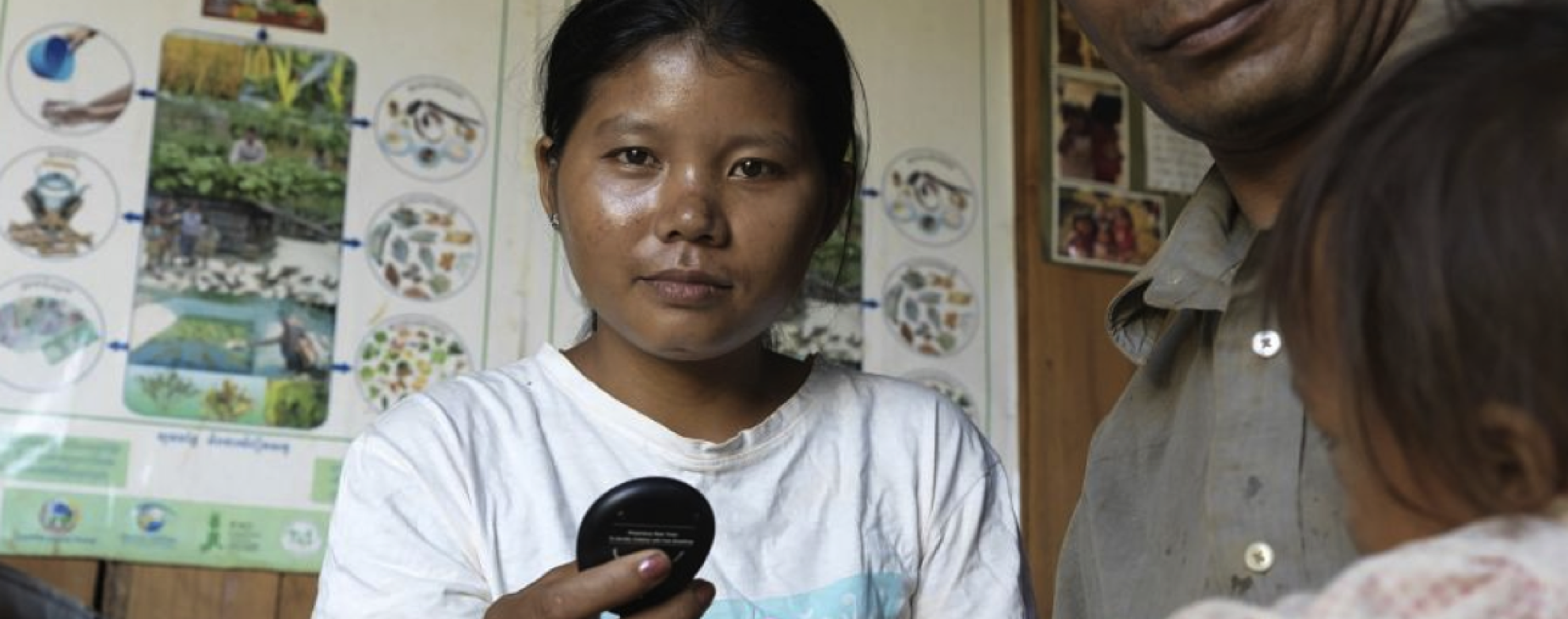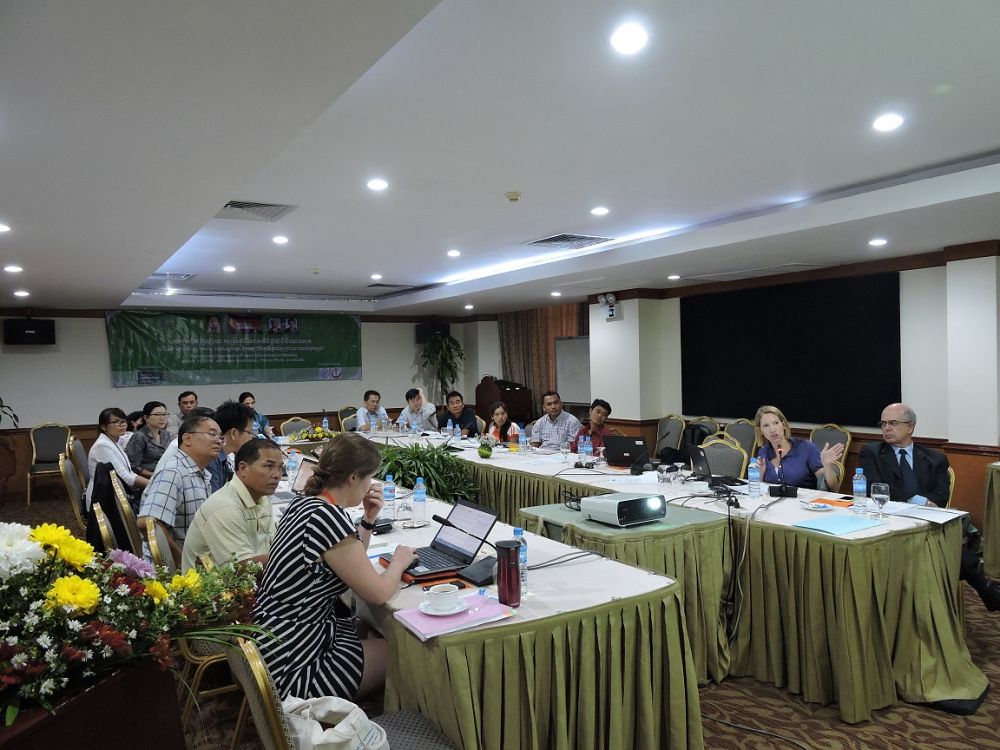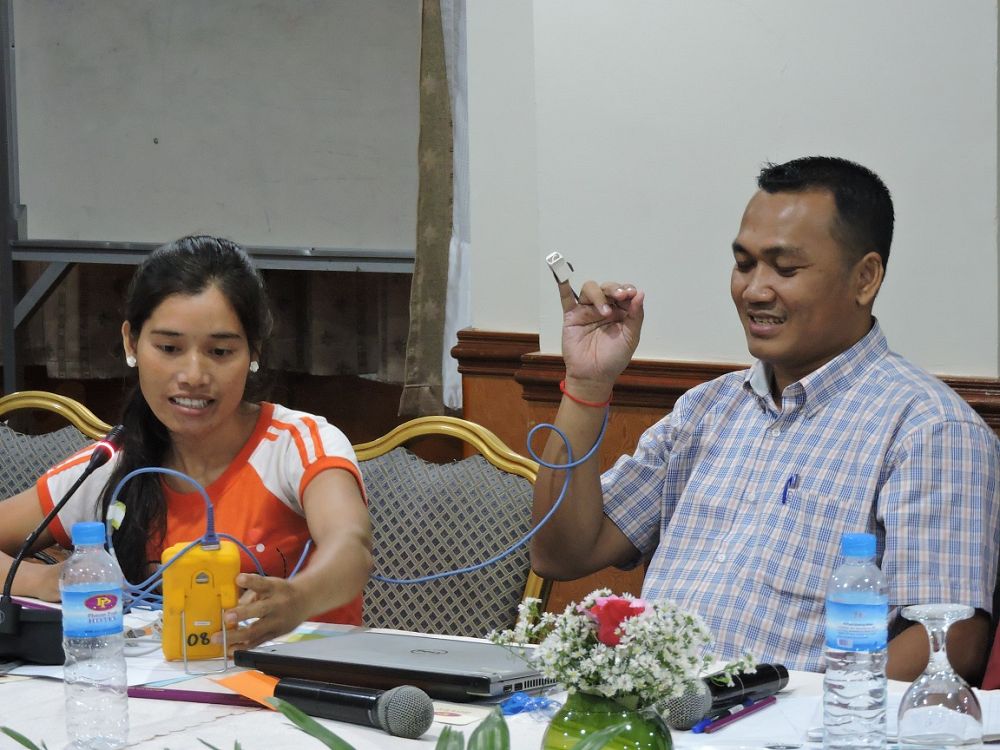
Pneumonia Diagnostics Project shares results at dissemination meetings in Cambodia
5 May 2016On March 15, 2016, Malaria Consortium hosted a workshop in Phnom Penh, Cambodia, to disseminate the preliminary results of our multi-country pneumonia diagnostics research project. The research aims to identify the most accurate and acceptable respiratory rate and pulse oximeter diagnostic devices to support community health workers (CHWs) and first-level health facility workers (FLHFWs) in the detection of pneumonia in four low-resource settings (Cambodia, Ethiopia, Uganda, and South Sudan). Nearly 25 participants from various Ministry of Health departments (maternal and child health, malaria control, and communicable disease control), pediatric hospitals, national and international non-governmental organisations, and UNICEF convened to address the meeting’s three-fold objectives:
- Understand the context of pneumonia in Cambodia, including the disease burden, national policy environment, and existing control and management activities;
- Update on the pneumonia diagnostics project, including the research aim, methodology, and results available to date; and
- Stimulate dialogue on how the research findings can be used to inform future pneumonia or integrated community case management (iCCM) programmatic or research efforts in Cambodia.

The results dissemination workshop kicked off with a situational analysis delivered by Dr Thai Savuth, the Chief of Prevention and Control at Cambodia’s Department of Communicable Disease Control (CDC), which was followed by a review from Malaria Consortium of the existing iCCM global evidence base with a focus on pneumonia. Preliminary results of the accuracy of the respiratory rate and pulse oximeter devices were presented, and key project findings and a proposed way forward were shared, leading to some discussion among the stakeholders.
Before concluding the half-day workshop, CHWs and a FLHFW who participated in the project in Ratanakiri Province demonstrated the use of the devices and offered testimonies on the challenges of diagnosing pneumonia at both the village level and in health facilities. The CHWs and the FLHFW also offered their views on the acceptability and utility of these devices in the community, which promoted much interest and discussion among the attendees.
 The workshop generated many questions and considerable enthusiasm surrounding the role the devices, and potentially iCCM, can play in reducing the high burden of childhood pneumonia in Cambodia. In line with the third meeting objective, Malaria Consortium fostered some discussion among the stakeholders present on how the project findings can be used to inform future pneumonia management or broader iCCM efforts in country.
The workshop generated many questions and considerable enthusiasm surrounding the role the devices, and potentially iCCM, can play in reducing the high burden of childhood pneumonia in Cambodia. In line with the third meeting objective, Malaria Consortium fostered some discussion among the stakeholders present on how the project findings can be used to inform future pneumonia management or broader iCCM efforts in country.
A separate results dissemination meeting was also held in Ratanakiri in late March 2016 to share findings with local stakeholders, including all the CHWs and FLHFWs who participated in the project, and gather their feedback on the results and next steps.
For additional information on the project, including video documentaries, please visit the following site: http://www.malariaconsortium.org/projects/pneumonia-diagnostics
Keywords: Digital strategies | Community delivery | Diagnosis | Maternal, neonatal and child health | Advocacy and policy
Related content
10 March 2016
The Pneumonia Diagnostics Project: evaluating devices for accuracy
18 March 2016Pneumonia diagnostics dissemination workshop held in Ethiopia
12 November 2015Laying the groundwork for a successful field evaluation of the pneumonia diagnostics project
Pneumonia at a glance
Latest news
- International summit calls for AMR accountability in public health interventions21st March 2024
- Global SMC community celebrates new milestone at SMC Alliance Annual Meeting in Nigeria6th March 2024
- Scaling up key interventions could halve pneumonia-related childhood mortality13th February 2024
- Malaria Consortium and eGov Foundation join Mozambique’s national malaria programme to digitalise seasonal malaria chemoprevention campaigns8th February 2024
- World’s first malaria vaccine rollout launched in Cameroon22nd January 2024
- Digital solutions driving equitable access to health6th December 2023